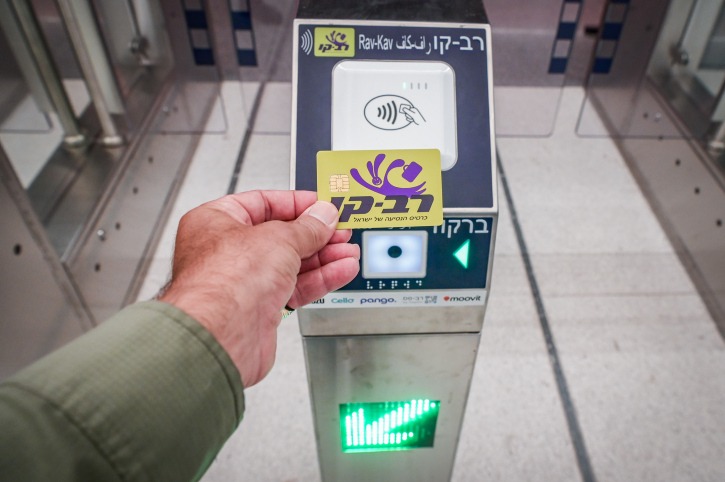
The circle of those eligible for discounts on public transportation in Israel is expanding significantly: starting Friday, approximately one and a half million additional citizens will benefit from a 50% discount on travel prices on all means of public transportation in Israel - based on socioeconomic ranking.
This is in addition to approximately one and a half million citizens who were eligible for this discount so far, based on the location of their settlement in the geographical periphery.
In total, approximately 3 million Israelis are now eligible for a discount based on the socioeconomic or peripheral ranking of their place of residence.
The second wave of the 'Transportation Justice' reform brings a significant benefit of 50% discount to an additional million and a half citizens, in thousands of neighborhoods and streets in the country, ranked at socioeconomic levels 1-5, who were not included in the first wave.
For the first time in Israel, and in accordance with the request of Transportation Minister Miri Regev, eligibility was determined by street or neighborhood rating, and not just by the rating of the entire locality as was the case in the past. This ensures that eligibility for the discount will reach the public who really need it, with the highest level of accuracy.
The ranking is determined based on updated data provided by the Central Bureau of Statistics (CBS), and bridges gaps that can be found in many localities where diverse populations live at different socioeconomic levels.
For example, residents of the Jesse Cohen neighborhood in Holon, which is ranked at socio-economic level 3, are now entitled to a discount of 50% on public transportation, even though Holon is ranked at level 7. Likewise, residents of the Bar-Ilan neighborhood in Ramat Gan (socio-economic level 3) will also be entitled to discounts, even though Ramat Gan is ranked at level 8. Residents of the Kfar Shalem neighborhood in Tel Aviv (socio-economic level 1) will now pay half price, even though the city of Tel Aviv is ranked at level 8. Likewise, residents of the Ganei Hadar neighborhood in Petah Tikva (socio-economic level 3) will also be entitled to discounts, even though their city is ranked at level 7.
At the same time, a price control order was approved that updates public transportation fares by two shekels per single trip, and the prices of various subscriptions will be increased accordingly.
However, it should be emphasized that most Israeli citizens are entitled to a significant discount that greatly reduces the price increase, or to free travel. According to the ministry's data, over 801% of the population is entitled to a discount or free travel based on place of residence (socio-economic or peripheral ranking), age (youth, young people up to 26, senior citizens), discharged soldiers and national service graduates, students, people with disabilities and National Insurance beneficiaries.
In total, as mentioned, with the launch of the second wave of the reform, over 801,000 Israeli citizens now benefit from a discount or free travel on public transportation.